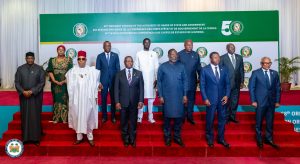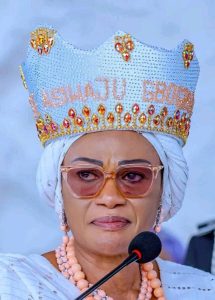The Liquefied Natural Gas (LNG) signature bonus fund has again become a subject of controversy and suspicion. What was initially conceived as a revenue buffer to strengthen the federation’s finances is now at the center of allegations of political manipulation and diversion of public resources.
The history of this fund is traceable to the handover note of former President Jonathan in 2015. In that note, Jonathan left behind a hefty sum of $5.7 billion in an escrow account, representing LNG signature bonuses. Alongside this, there was $2.2 billion in the Excess Crude account and $1 billion in the Sovereign Wealth Fund. These resources, meant to provide stability and support national development, were entrusted to the incoming administration. However, over time, allegations of mismanagement, depletion, and diversion began to surface, leaving pertinent questions of what became of these reserves.
Today, a new pointer suggests that the LNG bonus funds, now valued at more than ₦10.8 trillion, have matured and are being positioned for disbursement under the supervision of the Ministry of Finance. According to sources, each state is projected to receive roughly ₦300 billion from the pool. The structure of the disbursement, however, raises serious concerns. Reports indicate that 45 percent of the allocations accruing to the states have been earmarked to fund the political machinery of the All Progressives Congress (APC) ahead of the 2027 elections, with the party’s national headquarters allegedly guaranteed a monthly inflow of ₦1 billion.
Rather than being directed into the national budget or invested in infrastructure and national development these funds are said to be warehoused in Treasury Bills with the CBN for an 18-month maturity period. Zenith Bank and Access Bank have reportedly been chosen to oversee the dispensing of the allocations, while a consulting firm is expected to collect 15 percent of the gross proceeds as fees.
Critics argue that this approach strips the fund of its original purpose. Instead of bolstering the federation account, supporting fiscal planning, and serving as a financial stabilizer in times of crisis, it is being converted into a political war chest. The fear is that the same mistakes of the past are about to be repeated, where monies that should have served all Nigerians end up fueling campaigns, patronage networks, and partisan projects.
It is further alleged that Senator Abdulaziz Yari, whose child was wedded today in Kaduna, has been at the forefront of this scheme since 2024, actively mobilizing resources and preparing APC structures nationwide to benefit from this pool. The implication is that what should be a neutral national asset has been quietly transformed into the backbone of a reelection strategy.
For ordinary Nigerians, the danger is clear. A windfall that could have been used to fix infrastructure, create jobs, revamp hospitals, build schools, and strengthen security is being cornered for narrow partisan advantage. With inflation biting hard, unemployment rising, and public trust at an all-time low, the prospect of seeing billions of naira channeled into politics rather than the people’s welfare is deeply troubling.
Nigeria’s resource wealth has always carried the promise of prosperity, yet time and again, mismanagement and political expediency have stood in the way. The LNG fund should not be another tragic chapter in this long-running story. It must be subjected to transparency, parliamentary oversight, and strict adherence to appropriation laws. Anything short risks turning the hope of national renewal into yet another vehicle for elite enrichment and political survival.
At a time when the country needs every available resource to stabilize the economy and rebuild trust, diverting LNG funds into campaign coffers ahead of 2027 is not only reckless but unjust. Nigerians deserve better than to see their commonwealth reduced to political capital.






